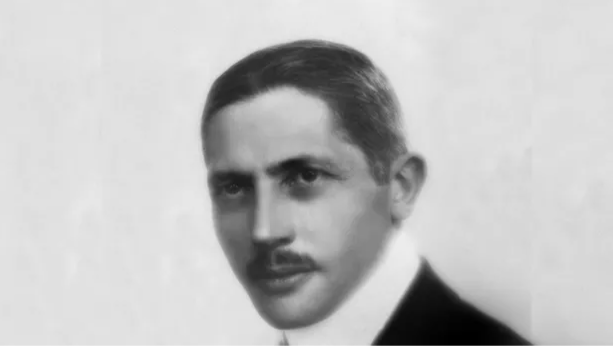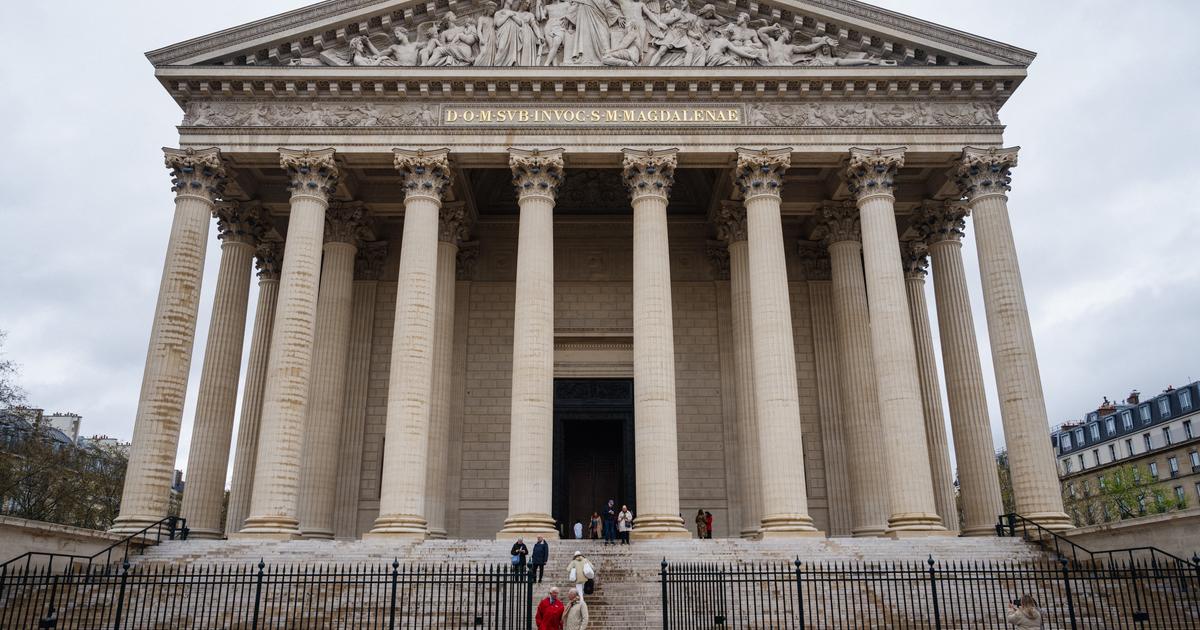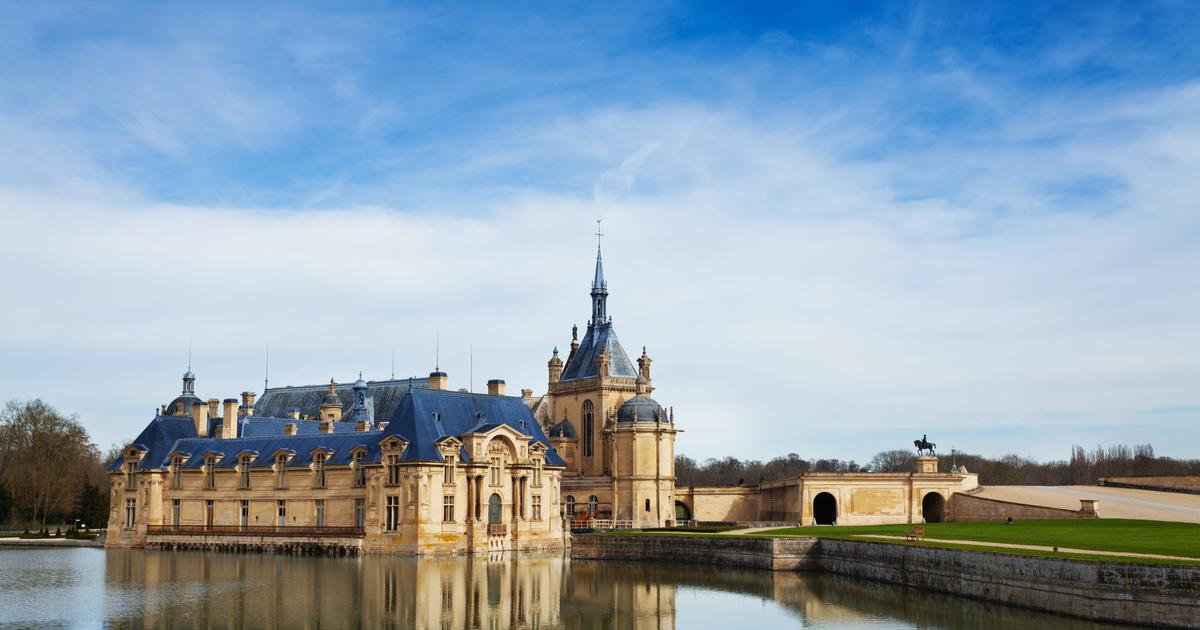A former student of the École normale supérieure, Jean-Loup Bonnamy is a graduate in philosophy and a specialist in political philosophy.
“
Bonaparte is no longer the real Bonaparte, he is a legendary figure.
He belonged so strongly to absolute domination that after having suffered the despotism of his person, we must submit to the despotism of his memory.
This last despotism is more domineering than the first, because if we fought Napoleon while he was on the throne, there is universal consent to accept the irons that he throws at us dead.
The soldier and the citizen, the republican and the monarchist, the rich and the poor, also place the busts and portraits of Napoleon in their homes, in their palaces or in their cottages.
This is what Chateaubriand wrote about the Napoleonic legend.
To read also: Éric Zemmour: "Jacques Bainville, a Cassandre so current"
To understand the real Napoleon, behind the legend, one must reread the biography devoted to him by Jacques Bainville (1879-1936), journalist, historian and essayist, monarchist and nationalist.
Published in 1931, the book was a bestseller.
Bainville's biography chronologically unfolds the major stages in Napoleon's life.
From its Corsican origins to its posthumous legend.
Bainville extols this “
incomparable meteor
(…)
imaginative, powerful creator of images, poet
”, stressing that “
the magic of the name of Napoleon is one of the most astonishing phenomena in the history of the French people
”.
Napoleon was born in Corsica in 1769. The island has been French for a year.
If Corsica had not become French, if France had not provided a favorable framework, Napoleon's genius would never have been able to flourish.
He is a survivor: "He
still needed a military education."
Where would Napoleon have received it?
Without France, his genius would not have been revealed.
Annexation was his first happiness.
Even today, there are still many children of immigrants who have become engineers, executives, doctors, athletes, actors ... and whose social advancement would never have been possible in their country of origin.
Corsica, Bonaparte does not share French passions.
He looked at revolutionary events with an outside eye, almost alien, devoid of any partisan spirit.
Jean-Loup Bonnamy
While pre-revolutionary France is polarized around the gulf which separates nobility and Third Estate, Corsica ignores such a division: "
neither peasants, nor bourgeois, nor lords, ignoring or more or less feudalism, the Corsicans regarded each other as equals among themselves. , because they were in the mediocrity of wealth and this is the reason why they liked so much to Jean-Jacques Rousseau
". It is these Corsican origins which explain, according to Bainville, that Napoleon was able to close the abyss of the Revolution and lead a policy of national reconciliation, merging the old elites of the Monarchy and the new elites of the Revolution. Indeed, Corsican, Bonaparte does not share French passions. He looked at revolutionary events with an outside eye, almost alien, devoid of any partisan spirit and without being inflamed for one cause or another.
Thanks to the protection of M. de Marbeuf, governor of Corsica, Charles Bonaparte could send his son Napoleon to the military school of Brienne, in Champagne.
Brienne's school “
gave him the impression that France was a very large country.
Today, between repentance, laxity and collapsing standards, how many schools give children the impression that France is a very large country?
To read also: Guillaume Perrault: "1914-1918: the overwhelming lucidity of Jacques Bainville"
Bonaparte will never forget Brienne. He would return there in 1805 and 1814, when he led one of his most incredible campaigns to resist the invasion of the territory. Emperor, he will grant honors and pensions to his former teachers. Raised, he met characters that he will find later on his way: Bourrienne, of whom he will make his secretary, the learned Laplace, who will make him take a mathematics exam and who will be his Minister of the Interior, Phélipeaux, officer royalist artillery and émigré, which Bonaparte will face in Syria, General Pichegru, professor of arithmetic, future hero of the revolutionary wars before becoming a royalist plotter. While Pichegru hesitates between a military career and an ecclesiastical career,little zealous priests advise him on the profession of arms. Having come to power, Napoleon will have his former professor Pichegru arrested, who will be found strangled in his cell. As Bainville ironically notes, Pichegru “
would no doubt have finished better if he had met religious less deprived of the spirit of proselytism.
»Later, another ruler, King Hassan II of Morocco, will also get rid of his former mathematics teacher turned opponent: Ben Barka.
Napoleon was himself the most complete incarnation of this instability, of this inability to remain in place, of this ambition which the spread of literacy gave birth to so many minds.
He is the father of all Julien Sorels and all Rastignacs
Jean-Loup Bonnamy
One of the most important and original points of Bainville's book is the analysis of the place of reading in Napoleon's life: “
He read avidly (…) we can say that his youth was a long reading. . He had retained from it an extraordinary abundance of notions and ideas.
Napoleon reads. And he takes notes, because “
reading without a pen is just a daydream
”. As Napoleon himself said, "
I always find learning
". This incredible ability to learn, retain and benefit from his readings will be one of the keys to his success. Thanks to Bainville, we better understand Napoleon's psychology and the origin of some of his ideas. Moreover, when Bainville evokes the uprising in Spain and the terrible guerrilla war led by the Spanish peasants against the Grand Army, he emphasizes that there is no book on Spain in Napoleon's reading list and that this gap was probably at the origin of his errors. But above all, we can do a broader sociological analysis. Indeed, we know since the work of Lawrence Stone and Emmanuel Todd that the literacy process produces extremely destabilizing effects for individuals and societies. It's'literacy of the population which provoked the English, French and Russian revolutions. The whole of the 19th century will be haunted by this question. In
Le Rouge et le Noir
by Stendhal (1830), the ambitious Julien Sorel (distraught admirer of Napoleon) spends his time devouring
The Memorial of Saint Helena
. His father, an illiterate carpenter, describes him as a "
lisard dog
". In
Flaubert's
Madame Bovary
(1857), Emma will suffer in the depths of her not to find in the monotony of her boring provincial life the impulses she finds in books. Psychiatrists have even called "bovarysm" the disease which consists in confusing fiction and reality. In
Countdown
de Huysmans (1884), the description of the library of Des Esseintes, a neurotic esthete, occupies several dozen pages. Literacy destroys the calm stability of traditional societies, confined in the gentle tranquility of the eternal return of the same and where everyone is satisfied with their place in society. Opening up new horizons, it gives birth to ambition. Driving a wedge between illiterate parents and literate children, it undermines authority.
Reading produces en masse dissatisfied people who will be either madmen, or revolutionaries and fanatics, or ambitious people who only think of raising themselves socially. Napoleon was himself the most complete incarnation of this instability, of this inability to remain in place, of this ambition which the spread of literacy gave birth to so many minds. He is the father of all Julien Sorels and all Rastignacs, real or fictitious. He was able to rise thanks to the Revolution, which was itself a consequence of literacy. Thanks to his readings, he was able to accomplish many feats and upset the map of Europe, destroying the old diplomatic order, at the very moment when literacy, overwhelming consciences, was simultaneously destroying theold social and psychic order.
Napoleon chose the artillery where he carried out an internship in the ranks, in contact with ordinary soldiers.
In our time when the elites are so disconnected from the field, such an internship in contact with the base would be beneficial
Jean-Loup Bonnamy
Likewise, Bainville also shows us that Napoleon, whose figure will haunt the entire 19th century, is above all a man of the 18th century. His literary style, his conceptions and his prejudices, his neoclassical aesthetic tastes, his boundless admiration for Frederick II of Prussia (he was keen to take Frederick's awakening to Saint Helena) ... everything in Napoleon is the product 18th century. Even his way of waging war. Indeed, after its defeat against Prussia (1757), the French army experienced a profound intellectual and strategic upheaval. It is reforming from top to bottom, imitating the Prussian model, even going beyond it. Napoleon, a pure product of this turmoil and of this new army put in place in the last years of the reign of Louis XV, is the disciple of these great reformers,inventors of a new way of waging war: Guibert, Bourcet, du Teil, Minister of War Saint-Germain. All the great Napoleonic principles were born in this movement: concentration in order to have numerical superiority on a given point, surprise, speed, speed and precision of movements to surprise the enemy ("
winning the war with his legs
”). This "
ideal of offensive and vigorous war
" (Captain Colin) will be taken up by the Revolution, which will add to it the enthusiasm of democratic armies, and will reach its peak with Napoleon. Once in power, he will host Saint-Germain for lunch and have him pay homage to the Consular Guard: “it
was like a salute to the old army.
"
Napoleon chooses the artillery.
Thanks to Gribeauval's reform, it is the best in Europe.
It was she who won the victory of Valmy (1792), which was above all a cannonade.
He did an internship in the ranks, in contact with ordinary soldiers: “
Another excellent school.
Bonaparte, for all his life, will know what the troop is.
He will know what he is thinking and what he likes, what to tell him and how to talk to him.
In our time when the elites are so disconnected from the field, such an internship in contact with the base would be beneficial.
To read also: "Napoleon, it was and still is the greatness of France"
The Revolution takes place. Things are linked: garrison in Auxonne (Côte-d'Or), siege of Toulon, which allows him to become general at the age of twenty-four, friendship with the brother of Robespierre and Barras, repression of a royalist insurrection in Paris (1795), marriage with the beautiful Joséphine, command of the Army of Italy (1796-1797). In Italy, Bonaparte flies from success to success. At the Battle of Lodi, he saw his star and the revelation of his destiny: “
I could already see the world fleeing beneath me as if I were carried in the air. I no longer saw myself as a simple general, but as a man called to influence the fate of a people.
He emancipated himself from the political tutelage of the Directory, administered the conquered territories himself, disobeyed orders, negotiated peace on his own initiative.
The Directory cannot say anything: the booty sent by Bonaparte allows him to make ends meet.
When Bonaparte arrives in France, the country is ravaged by insecurity, attacks, thefts.
This endemic insecurity will be one of the causes of popular support for Bonaparte's coup d'état
Jean-Loup Bonnamy
After Italy, Napoleon set out to conquer Egypt (1798-1799) in order to cut the British route to India, a plan that had already been suggested by the philosopher Leibniz to Louis XIV. The young Bonaparte was fascinated by the Orient, which, once again, was not surprising for an eighteenth-century man who thought of putting himself at the service of the Ottoman Sultan in order to reorganize his artillery and who read
Zadig
by Voltaire. "
Islam, he already knows it, he studied it. He knows how to talk to Muslims and understand them. He is interested in their religion, their history, their mores. He talks to the ulemas, he shows respect for their persons and their beliefs. He even ordered that the feasts of the Prophet's birth be celebrated. (…) The Cairo revolt itself, an accident of fanaticism, had not troubled him. He made examples, and terrible ones. But he continued to marry the crescent and the red cap, Human Rights and the Koran, the formula after all that he will apply in France by "fusion". "
Bonaparte administers the country as if he were to stay there forever. Many modernizing Egyptian leaders, from Mehémet Ali to Nasser, and Atatürk in Turkey will be Bonaparte's followers. But Bonaparte left Egypt by embarking on the frigate
Muiron
, named after this friend who sacrificed his life to save him in Arcole. He returned to France to take power there. Governing France at 30? This is not inconceivable for a man who has ruled two countries before, Italy and Egypt.
When Bonaparte arrives in France, the country is ravaged by insecurity, attacks, thefts. Many are the convoys attacked and Roustan, Mamluk and Muslim bodyguard brought back from Egypt by Bonaparte, qualifies these highwaymen as “French Bedouins”. This endemic insecurity will be one of the causes of popular support for Bonaparte's coup d'état. The past reminds us that it is above all the need for security that gives rise to coups d'état. If we want to avoid putschs, the best way is still to get out of laxity, to ensure the authority of the State and the security of citizens everywhere on the national territory. It was for not having understood this that the Directory died under the boots of its former darling child, Napoleon Bonaparte, whoseized power by a coup d'état on 18 Brumaire, year VIII (10 November 1799).
Bonaparte, so brave, so courageous on the battlefields, fears crowds, whether they are the popular masses or a group of deputies
Jean-Loup Bonnamy
Advised by the "
trio of priests
" Sieyès, Talleyrand and Fouché (all three of whom have worked for the Church), General Bonaparte is the man of the third party, of those who seek above all order and stability, far from ideologies and the excesses of extremists of all stripes.
“
This mass, zero at the beginning and in the midst of great crises, is the one that weighs the most at the end.
The coup d'etat nearly failed
.
Indeed, the Parliamentarians do not allow themselves to be done, insult Bonaparte, grab hold of him, push him aside. The general is seized by a violent nervous breakdown. Here Bainville gives us a valuable analysis: Bonaparte, so brave, so courageous on the battlefields, fears crowds, whether it be the masses of the people or a group of deputies. This repulsion for crowds was further increased with the spectacle of the Revolution. To be torn to pieces by a mob is death without glory.
“Contact with crowds will always give him nervous repulsion. He is used to being in charge, and as soon as he no longer acts by his prestige alone, he loses his means. (…) With this horror of the crowd, this apprehension of the civil war that he will still have in 1814 and 1815 and which will make him, without resistance, accept the abdication. "
But by an extraordinary effort of will, Bonaparte resumed his composure. He who wanted to avoid using bayonets, gave the order to his faithful Murat to set in motion the soldiers to disperse the deputies. Murat complies and orders his grenadiers: "
Get everyone out there!"
".
Bonaparte takes power.
He will keep it for fifteen years.
But the worm is already in the fruit.
All the witnesses of the event - Napoleon's brothers, generals, politicians like Talleyrand and Fouché - know that things have hung on by a thread and will not stop saying to each other when they think of power: “
Why not me?
".
To read also: Polemics on Napoleon: "A will to lower genius is at work"
Bonaparte restores security and stability, cleans up finances, stimulates the economy, reorganizes the administration, creates the Banque de France, the lycées and the Legion of Honor. He ended the Revolution while perpetuating its main achievements (equality before the law, religious freedom, protection of buyers of national property, etc.). He is building a society where the privilege of birth is nothing and where effort, talent and merit are everything. He tries to unite aristocratic honor and bourgeois opportunism. As Stendhal writes, “At
that time, a pharmacist boy, among his drugs and jars, in a back room, was saying to himself as he folded and filtered that if he made some great discovery, he would be made. Count with fifty thousand francs a year.
»With the Civil Code, he founded modern French law. His source of legal inspiration? As a young officer, he was punished and placed under arrest for twenty-four hours. In his cell, he read the
Institutes
of the Byzantine Emperor Justinian, a veritable manual of Roman law: "
from a casual reading, he had restrained enough to be at ease with old jurists
".
Despite appearances of absolute power, Napoleonic power is in fact a short, fragile, precarious episode. No one is more aware of this fragility than Napoleon himself: “
I felt my isolation. So I threw anchors of salvation to the bottom of the sea on all sides.
”He“ has
the exact feeling of a precarious situation and a tightrope walk.
"And Bainville added:"
There is even something tragic in this search for solidity, in this unacknowledged anxiety, in this use of all springs.
»Create the Legion of Honor, become emperor, have the Pope assist in his coronation, marry the daughter of the Emperor of Austria, place his brothers on the thrones of Europe, develop one of the best police forces of history, directed by Fouché ... so many anchors which in fact reveal the fragility of this strong power. “
At the very height of power and glory, the Emperor's need for Fouché is the avowal of a secret fragility.
"But Napoleon's entourage also knows this fragility, which, instead of worrying or pushing to help the Emperor, on the contrary nourishes the wildest ambitions:"
comical, Napoleon will have to get angry so that his brothers deign to sit on thrones, that of France being the only one
they deem worthy of them. "
It is only to bring down London that Napoleon will go to Russia, engulfing his army in a terrible winter.
Jean-Loup Bonnamy
Bainville can advance his main thesis here.
For him, the Napoleonic episode was hopeless.
Indeed, the Revolution had annexed Belgium, an old French dream.
Heir to the Revolution, Napoleon could not renounce this conquest.
However, the possession of Belgium involved a war to the death with the United Kingdom.
As Napoleon said, “
Antwerp is a gun aimed at the heart of England.
In 1914, it was for the same reason that the United Kingdom waged war on Germany: to liberate Belgium. Bainville, nationalist, fine analyst of diplomacy of his time and indefatigable adversary of Germany, will welcome this British intervention. But from 1793 to 1815, it was against France that London made war. And this war, Napoleon cannot win it. Because Great Britain is an island and a great naval power. So it takes a navy to defeat it. However, the French Revolution completely destroyed our navy, which was nevertheless on a par with the
Royal Navy
under Louis XVI and had allowed the independence of the United States. It is this crime of dismantling the French maritime power that the royalist Bainville does not forgive the Revolution.
“
Here we have to change the usual point of view, no longer looking at the Empire from within, but from without. We leave Napoleon at an unparalleled height of success and triumph in Paris. In London, we calculate, we have everything for the moment of its fall. We are here, in the history of Napoleon, at the very center, at the point where what precedes it and what will follow connect. The legacy of the Revolution, he did not receive it under benefit of inventory but with all its charges, with its hidden defects. This universal legatee has a mandate to make the greatest naval power in the world capitulate and he has not found, in France's resources, what cannot be improvised, a navy. The sea has been for him, will always be fatal to him.
" The United Kingdom "
will lead the fight to the end with a bureaucratic method and obstinacy, enduring disappointments with phlegm, tirelessly repeating the same procedures, those of a large trading house all the more determined to bring down the rival it has hired in the struggle for more capital and from which it would be foolish to expect a movement of sensitivity.
"
In 1805, there is a defeat (naval), Trafalgar, and a victory (land), Austerlitz.
Nothing is greater than Austerlitz: “
in the military annals of all times, there is no page more brilliant than the campaign which, in a fortnight, results in the capitulation of the adversary.
But what remained of the French navy and which was to make it possible to land in England was destroyed in Trafalgar. It is a turning point for Napoleon. The passage of the Channel being henceforth impossible, a new system, that of the Continental Blockade, is being sketched out. The policy according to Trafalgar will consist in taking possession of the European shores to close them to England. It will be necessary to go always further, to fight always more land battles (and to win them), to raise more and more soldiers, to always make new conquests in order to economically asphyxiate the British by forbidding them to trade with Europe. It is the headlong rush. It is only to bring down London that Napoleon will go to Russia, engulfing his army in a terrible winter. This crazy, disproportionate race,which implies the total domination of Europe, no one can win it. Not even a genius like Napoleon. British Prime Minister Pitt dies of sorrow when he learns of Ulm and Austerlitz which, for him, erase Trafalgar, when in reality, Trafalgar, which is definitive, cancels the effects of Ulm and Austerlitz, which will always have to be started again. "
In France, the public, always quick, after a failure, to be disgusted with the prolonged effort demanded by naval power, will no longer think about it, not even having understood the scope of this Trafalgar disaster whose dismal syllables will only take on their meaning after the death knell of Waterloo. "
Napoleon consumes himself in this hopeless struggle, wears out everything, the soldiers, the others, himself. "
Always in a hurry, devouring his tomorrows, reasoning leads him straight to the pitfalls that his imagination represents for him, he runs to meet his loss as if he was eager to end it.
His genius has prolonged, at great expense, a game lost in advance.
"
For Clausewitz, Napoleon is "the god of war".
For Maurice Barrès, he is a “professor of energy”.
Churchill, who always wanted to write his biography, saw in him "the greatest man of action since Julius Caesar".
Jean-Loup Bonnamy
For Bainville, Napoleon is a genius.
In 1799 it was necessary to end the Revolution and prevent the dismantling of France.
But he is also a megalomaniac.
In fact, Bainville is an admirer of Talleyrand, who faithfully served Napoleon until 1807, but then betrayed him, considering that the Emperor had gone mad and that his adventure could only end badly.
Lucidity, will, a formidable spirit of analysis and synthesis, power of work, strategic genius, memory, organization, ability to surprise and make an impression ... Napoleon's genius appears in all its splendor under the pen of Bainville. The battles are linked: Jena, Eylau, Friedland, Wagram, Moskowa ... All of Europe trembles in front of him. In Moscow in Flames, Napoleon dictates the decree that reorganizes La Comédie française. In Eylau, on the verge of being defeated by the Cossacks, Napoleon yells at
Murat
: "
Will you let us
devoured by these people?"
? ”.
Murat takes a huge charge from all the French cavalry and turns the situation around.
Son of an innkeeper, Murat will be king of Naples.
Another of his marshals, Bernadotte, will become king of Sweden.
His dynasty still reigns in Stockholm today.
For Clausewitz, Napoleon is "
the god of war
".
For Maurice Barrès, he is a “
professor of energy
”.
Churchill, who always wanted to write his biography, saw in him
"the greatest man of action since Julius Caesar"
.
Wellington, who defeated him at Waterloo, had a huge statue of him placed in his London residence.
Read also: Can we be Jacques Bainville today?
But Bainville noted that Napoleon's genius did not always go in the direction of France: “
in seven weeks, he changed the face of Europe with such an abundance of negotiations, instructions, conventions, writings, that it would take pages to summarize it, a volume to read the details.
However, this revolutionary destruction of the traditional diplomatic order displeases Bainville. For him, Napoleon abandoned the old French policy which consisted in dividing Germany as much as possible, and was one of the fathers of the principle of nationalities and one of the precursors of Italian and German unity, which would ultimately cause prejudice to France. . "
This scourge of God was the instrument of the great transformations of Europe
", Transformations that Bainville deplores, who comes to the conclusion that"
except for glory, except for art, it would probably have been better if Napoleon had never existed.
".
He also takes up a formulation of Napoleon himself: visiting Rousseau's tomb in Ermenonville, he declared "
the future will learn if it would not have been better, for the rest of the earth, than neither Rousseau nor I would never have existed.
"
By giving birth, by his example, to ambition in hearts, by destroying the old order, by becoming the banner of revolutionary and nationalist movements, Napoleon, according to Bainville, set fire to the West of the world for a long time.
Jean-Loup Bonnamy
In 1814, the fall of Napoleon, inevitable from the first day according to Bainville, occurs. France is invaded. Let us give the floor to Malraux: “
Napoleon is alone and all of Europe is against him, and the campaign in France is a surprising military campaign. These unfortunate peasants who barely knew how to pull, with Europe opposite, the feeling of betrayal, the allies in front of Paris ... The French army, until the last minute, fought with surprising rage. "
After the Hundred Days and Waterloo, Napoleon was exiled by the British to the small island of Saint Helena, battered by winds and rain, in the middle of the Atlantic, between Africa and Brazil. An expert in propaganda, he will use his exile to reinvent himself and forge his legend. Bainville relates that, taking advantage of his jailer's pettiness, "
he kept only one right, but a precious one, that of complaining.
(…)
Perfect in the role of the martyr
(…)
, he was supported by the idea of the grandiose
.
"
By winning the battle of memory, Napoleon won his last battle.
For Bainville, the exile of Saint Helena is a representation for history: “â
pre connoisseur of men and life, adopting in turn contrary ideas, indulging in opposite feelings, without being able to affirm that he wasn't sincere every time.
In 1813, Napoleon, still Emperor, had made a conservative and monarchist speech, threatening Metternich by announcing to him that if he fell, all the thrones of the old monarchies would be drawn into his fall. But exiled to Saint Helena Napoleon becomes on the contrary a democrat and nationalist, preaching modern and revolutionary ideas in order to seduce the people. By giving birth, by his example, to ambition in hearts, by destroying the old order, by becoming the banner of revolutionary and nationalist movements, Napoleon, according to Bainville, set fire to the West of the world for a long time.
Malraux declares: "
Formerly, I believe it was in Tilsitt, the custom was that for ceremonies kings were brought in by announcing them with all their titles:" His Majesty the King of Prussia ". And the door was open. Single leaf. When everyone had entered, we opened the double door and shouted: "The Emperor!" without adding anything. And Napoleon entered ... Napoleon is a character who seems sent by fate to accomplish something other than what he decides to accomplish. You know its rather strange relationship with the cosmos: the sun setting behind the Arc de Triomphe
.
»
Report to the cosmos which seems engraved in the marble of fate since Bainville reminds us that
u
A storm was blowing when he died in Saint Helena on May 5, 1821.
So, after having read Bainville's exceptional synthesis, should we share his conclusion and consider that it would have been better if Napoleon had never existed? Let us leave the answer to de Gaulle, a great reader of Bainville. In August 1969, he should have directed the commemorations for the bicentenary of Napoleon's birth. But he resigned in April and it was his successor, Georges Pompidou, who would take care of it. Withdrawn in Colombey, near Brienne, as Napoleon was exiled to Saint Helena, he receives a visit from Malraux and asks him: "
Where are you with the Emperor?"
". A long conversation follows. And de Gaulle, asserting that the Napoleonic legend ultimately serves the prestige of France, concludes thus: "
Let us not haggle over greatness
".









